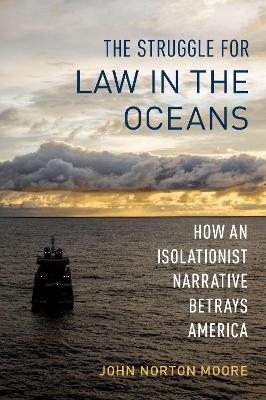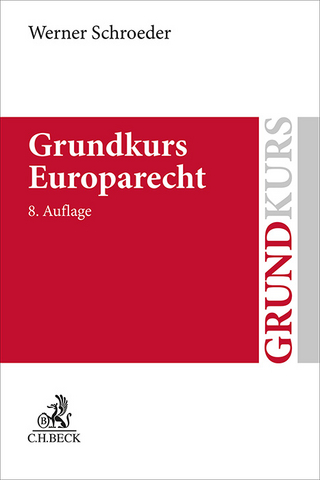
The Struggle for Law in the Oceans
Oxford University Press Inc (Verlag)
978-0-19-762696-2 (ISBN)
During the 1970s and 1980s the United States led the world in negotiating one of the most important treaties in history, the United Nations Convention on the Law of the Sea (UNCLOS). Through these negotiations the United States secured the largest area of maritime jurisdiction in the world-an area larger than the continental United States itself-and protected navigational freedom, so critical for Naval mobility.
The United States was also recognized as having access to four deep seabed mine sites, each roughly the size of the State of Rhode Island, and each containing approximately a quarter trillion dollars in strategic minerals. Today UNCLOS is in force for 168 countries and the European Union. Isolationist arguments, however, have for a quarter-century prevented the Senate from voting on the Convention.
This book is about the potential damage to American national interests caused by this isolationist narrative. It discusses the robust reasons favoring the Convention, and offers a sharp critical examination of the arguments still being made against it. John Norton Moore posits that isolationist obstruction has cost the United States two deep seabed mine sites, "USA-2" and "USA-3," for a loss of a half trillion dollars in strategic minerals, and shows how a continuation of this narrative threatens the loss of "USA-1" and "USA-4" for another half trillion dollars-all while China has acquired four deep seabed sites and the Russian Federation three. In this ground-breaking, and vigorously argued new work, Moore asserts that it is time to accede to the Convention, as has been urged for decades by Presidents from both sides of the political divide.
John Norton Moore is Emeritus Professor of Law and Emeritus Director of both the Center for National Security Law and the Center for Oceans Law and Policy at University of Virginia. He is an authority on international law, national security law, and the law of the sea. He also teaches advanced topics in national security law and the rule of law, and taught the first course in the US on national security law. Moore served as principal legal adviser to the Ambassador of Kuwait to the United States 1991-93, chaired the board of directors of the U.S. Institute of Peace 1985-91, was chair of the National Security Council Interagency Task Force on the Law of the Sea 1973-76, and as the counselor on international law to the State Department. He has also been a frequent witness before congressional committees and has published many articles on maritime policy, national security, and international law.
Chapter 1: The UNCLOS Treaty and Its Negotiation
Chapter 2: A Summary of Treaty Benefits
Chapter 3: A Summary of Costs from Non-Accession
Chapter 4: Protecting and Enhancing American Sovereignty
Chapter 5: Protecting and Enhancing American Security
Chapter 6: Protecting and Enhancing American Business, Jobs, and Tax Revenues
Chapter 7: Protecting and Enhancing American Oceans Leadership - Managing Change in a Thawing Arctic and Conflict in the South and East China Seas as Critical Examples
Chapter 8: Arguments against the UNCLOS Treaty are False or Misleading
Chapter 9: A Compendium of Specific Examples of False or Misleading Arguments Made against the UNCLOS Treaty
Chapter 10: The Opponents Show Their Colors and America Loses
Chapter 11: The Senate Resolution of Advice and Consent
Chapter 12: Restoring Reason in American Foreign Policy
Postscript
| Erscheinungsdatum | 04.02.2023 |
|---|---|
| Verlagsort | New York |
| Sprache | englisch |
| Maße | 235 x 163 mm |
| Gewicht | 635 g |
| Themenwelt | Recht / Steuern ► EU / Internationales Recht |
| ISBN-10 | 0-19-762696-3 / 0197626963 |
| ISBN-13 | 978-0-19-762696-2 / 9780197626962 |
| Zustand | Neuware |
| Informationen gemäß Produktsicherheitsverordnung (GPSR) | |
| Haben Sie eine Frage zum Produkt? |
aus dem Bereich


